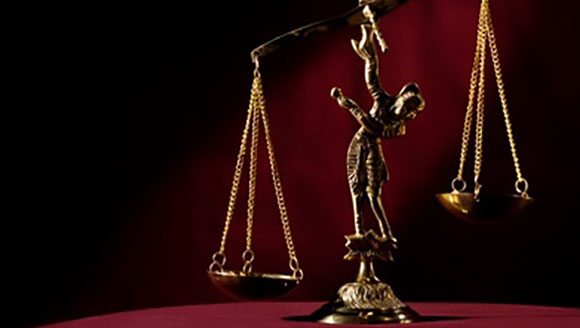Mid-stride in the March for Justice and Equity
It is with incredible honor that I write these words as the 45th lieutenant governor of the state of Wisconsin. The gravity of being the first African American elected to this office, and the second ever elected to statewide office, is not lost on me—nor is the fact that Wisconsin is home to some of the most extreme racial inequities in the nation.
Wisconsin is consistently ranked the worst place in America to raise a Black child. Many in our community are underpaid and overworked, encountering barrier after barrier in the search for secure employment. Wealth gaps—at levels not seen since the Great Depression—are a fact of life. Hardworking mothers and fathers struggle to make ends meet while the well-connected have rigged the system to accumulate wealth. The quality of a child’s education is highly correlated to his or her address. Schools with the lowest rates of success decay in the shadows of well-funded, high achieving schools in better neighborhoods. And systemic barriers, such as racism and poverty, have taken a toll on the health of the young and old in our community.
I grew up in Milwaukee’s 53206—America’s most incarcerated zip code. It is a community starved of resources but brimming with hardworking, brilliant Black people—people who try over and over to get ahead in life but remain furthest from the relief of opportunity. Many policies and practices established in this country were designed to systematically leave people behind—specifically Black people and our Indigenous, Latinx, and Asian American brothers and sisters.
Governor Tony Evers and I have a responsibility to make sure that opportunity exists in every part of Wisconsin for every resident. We understand that this includes ensuring that every person in our state has a voice and a vote. Our budget, which was crafted with the input of people across our state, including communities of color, includes policies that will confront and attack inequality by making democracy more inclusive than it has historically been in our state—and country.
In recent years, those in power in Wisconsin have worked diligently to disenfranchise the African-American vote and the vote of other communities of color—from gerrymandering our districts to making the simple task of voting unnecessarily arduous. These tactics are deployed in service of securing their power and oppressive policies. Their toxic actions polluted our democracy, ceded power from the powerless, and gave it to those who do not represent the best interest of the people. For example, in Wisconsin, the Republican majority in the state assembly received less than 49 percent of the statewide popular vote but ended up with 63.6 percent of the seats. If that isn’t evidence of gerrymandering, I don’t know what is.
That’s why our administration is working to abolish partisan gerrymandering. It is a tool that deprives communities of power—with the Black community bearing the brunt of this strategy. Instead, we want to implement non-partisan redistricting so those making decisions in our highest offices on behalf of the people truly reflect the will of the people. We also want to implement automatic voter registration in Wisconsin. We believe in making it easier to vote, not harder. And we’re making voting more accessible for young people and college students.
Enshrining the right of eligible citizens to vote and elect their representatives without the hindrance of politically manufactured barriers is a journey, not a destination. We are obligated to remember those who paved this path and sacrificed so much in the name of racial justice. We should remember Wisconsin heroes, like my friend, Vel Phillips, who was the first and the only African-American woman elected to statewide office in Wisconsin; and Ezekiel Gillespie, who attempted to vote in Wisconsin in 1865 but was denied a ballot. Gillespie sued, took his case all the way to the Wisconsin Supreme Court, and won. And of course, we owe our thanks to those like Ella Baker, Fannie Lou Hamer, Congressman John Lewis, and the countless greats of the Black freedom movement who fought for institutional change.
It has been more than 50 years since hundreds marched from Selma to Montgomery to demand the right for Black people to vote. Today, we embark on the same march in a new era. In this era, Jim Crow laws are masked beneath the guise of mass incarceration and large scale voter suppression. Our children are willfully denied access to clean drinking water while the children of families seeking refuge are separated at borders and put in cages. In this era, some of our elected officials are clamoring for an ineffective and inessential border wall that will only serve a goal of white supremacy.
Whether you are elected or not, we are all chosen—not to make history—but to make a difference. In spite of the challenges, we would be remiss not to acknowledge that we are also living in an era of change. An era where our nation has elected the most diverse Congress ever. For the first time, two Native American women are serving in Congress along with the first two Muslim women ever elected to Congress, one of Palestinian descent and a Somali refugee. Nationally, we also witnessed a historic wave of African-American women elected to office.
Americans are calling for change; and in my capacity as lieutenant governor, I will deliver that change to my home state. I stand ready to work with others throughout this nation to usher in a new chapter where every person can easily exercise his or her right to vote so the fate of our democracy can be determined by all. Our democracy is something we need to continue building for the future.
Wisconsin is by no means unique or unusual. All across our nation there are concerted efforts by some elected officials and legislative bodies to silence Black voices and the voices of those who favor inclusive, progressive policies. But they don’t get to win this fight. We will continue to march towards justice and equity and demand that our voices be heard and our votes are counted as cast. We have yet to fully manifest the dreams of those who struggled before us, but we stand tall on the shoulders and achievements of this movement started hundreds of years ago by our brothers and sisters. We are mid-stride in the march for justice and for equity, and we will march on until victory is won.


 Equality Index
Equality Index  Senate Report
Senate Report  2020 SOBA Essays
2020 SOBA Essays  2019 Report
2019 Report 